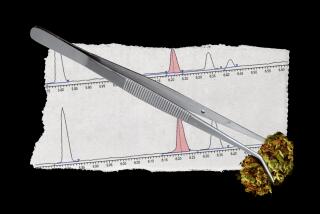Human Pesticide Tests OK, but Not Cloning
- Share via
The argument that human tests conducted by pesticide manufacturers are more accurate than animal tests is self-serving and potentially dangerous to the health of American children (“U.S. Will Use Once-Banned Human Tests,” Nov. 27).
The human tests are often performed on a limited number of healthy adults, sometimes fewer than a dozen subjects. The tests cannot reveal how these chemicals might affect infants, children or developing fetuses. No one would suggest that pregnant women and children be tested. Scientifically, human tests are useless for assessing risks to the most vulnerable populations; however, it is those at-risk groups that the law requires the Environmental Protection Agency to protect.
All manufacturers get from the testing is data they can use to argue for narrower margins of safety in pesticide limits, so that they can continue to sell older, risky pesticides at a big profit. The Bush administration shouldn’t condone such scientifically shoddy, ethically questionable testing, particularly when there are plenty of safer alternatives to these pesticides on the market.
Adam J. Goldberg
Policy Analyst, Consumers Union, Washington
*
Now we have new hypocrisy from the Bush administration. The EPA has decided that it is all right to test the toxicity of pesticides by having human beings swallow them but it is not all right to clone blastocysts of a hundred or so cells to try to produce treatment for terrible degenerative diseases. Bush and company seem to think it’s immoral to create and use a small bunch of undifferentiated cells but OK to poison living adults.
If I were suffering and the technology were available, I certainly would want to be helped, if not cured.
Julie May
Los Angeles






